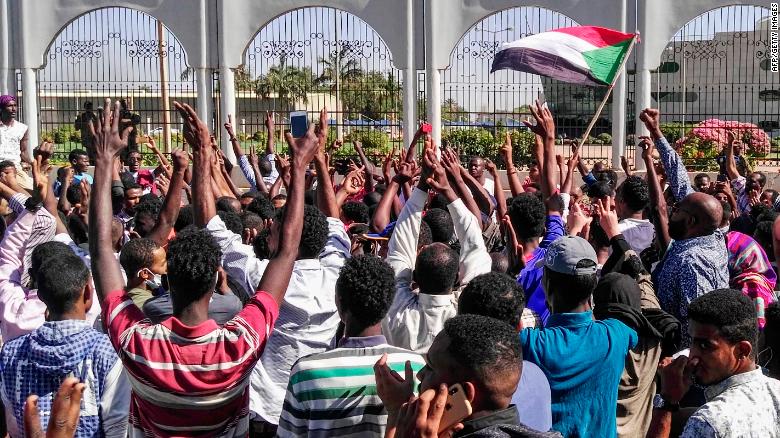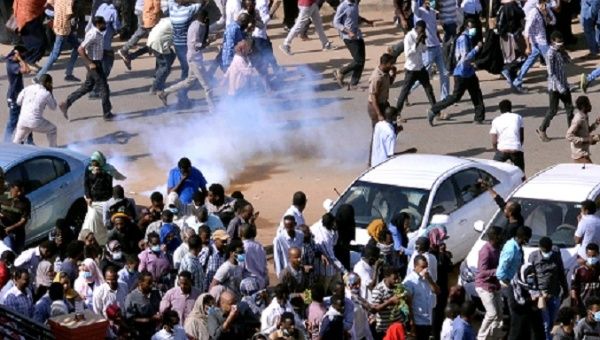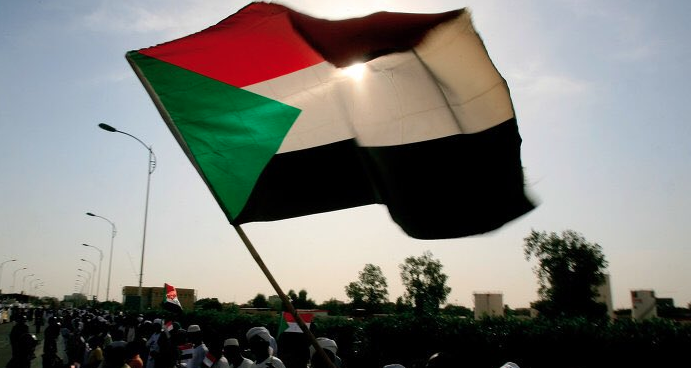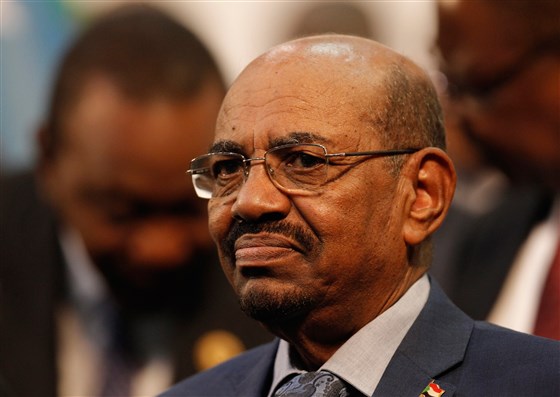
After months of civil unrest and anti-Bashir protests, Sudan’s Minister of Defense, Awad Mohamed Ahmed Ibn Auf, has announced the ousting of president Omar al-Bashir on Thursday.
Sudan’s army has also set up a transitional military council to take control of the country for a temporary duration of two years, as per a televised statement.
The news was expected as state television announced troops’ deployment in Khartoum and an ‘important announcement to be made soon’ earlier in the day.
Footage of thousands of civilians taking to the streets has been circulating on social media, namely of of female protesters referred to as ‘Nubian queens’ leading anti-government chants.
Security and army forces have taken position on major roads and bridges in the Sudanese capital; they’ve also been deployed around the defense ministry.

An Egyptian Streets reporter on the ground has described the action unfurling in Sudan: after weeks of sporadic internet access, blocked sites have now returned to function, all pro-government organizations sites have been blocked instead and the city’s airport has temporarily shut down amidst the coup events.
Although the protests were ongoing for months, the political situation bubbled over the weekend as a plethora of ptrotsters camped outside the Defence Ministry compound, where president Bashir lives, as per Egyptian outlet Al Ahram.
Sudan witnessed an outbreak of uprisings that began in the city of Atbara located in River Nile state in the northeast of Sudan in December 2018. The protests were aggravated by the economic crisis that has been taking a toll in the country.

The move came after months of shortage gas supply, a liquidity crunch, and an inflation in prices of basic commodities such as bread and sugar. The chants “zanagat, zanagat”, which roughly translates to it got too tight, took over the streets of Atbara where they burned down the National Council Party headquarters.
Since the start of the demonstrations, at least 57 protesters and police officers have been killed.
Although the demonstrations began as a youth movement, gradually they have gained the support of professionals including doctors, professors and the middle-classed segment of society.
The protests in Sudan, compared with the unfurling and contemporaneous events in Algeria, have sparked Egyptians to reflect over the current political situation in the country as well as the future of Sudanese-Egyptians relations.

President Omar al-Bashir has maintained a tight clasp on the country’s governance for nearly three decades, having taken office in 1989.
In march 2009, he was indicted by the International Criminal Court (ICC) in The Hague for supposedly directing a campaign of pillage, mass killing and rape in Sudan’s Darfur region, becoming the first sitting president to receive the indictment.







Comments (7)
[…] on Tuesday to discuss the situation in Sudan 12 days after former President Omar Al-Bashir was ousted as a result of four months protests and civil disobedience urging Sudan’s ruling Transitional […]
[…] I arrived to Khartoum, I had to witness this historic moment first-hand. I went after the news of Bashir’s expulsion and after Burhan took over as celebrations filled the streets of Khartoum. I was astonished by the […]